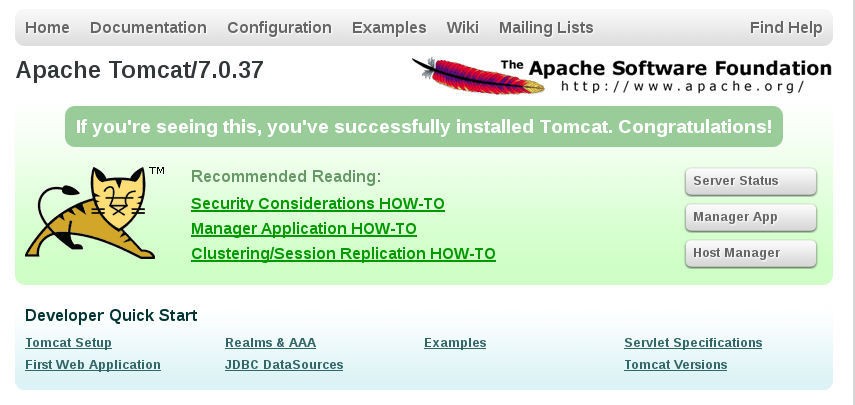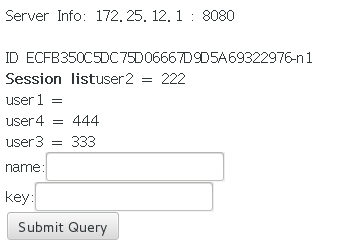I. Openresty
1. Compile and install opesresty
[root@server1 ~]# tar zxf openresty-1.13.6.1.tar.gz
[root@server1 ~]# cd openresty-1.13.6.1
[root@server1 openresty-1.13.6.1]# ./configure --prefix=/usr/local/lnmp/openresty
[root@server1 openresty-1.13.6.1]# gmake && gmake instal2. Configuration file
[root@server1 ~]# vim /usr/local/lnmp/openresty/nginx/conf/nginx.conf
19 upstream memcache {
20 server 172.25.12.1:11211;
21 keepalive 512;
22 }
53 location /memc {
54 internal;
55 memc_connect_timeout 100ms;
56 memc_send_timeout 100ms;
57 memc_read_timeout 100ms;
58 set $memc_key $query_string;
59 set $memc_exptime 300;
60 memc_pass memcache;
61 }
80 location ~ \.php$ {
81 set $key $uri$args;
82 srcache_fetch GET /memc $key;
83 srcache_store PUT /memc $key;
84 root html;
85 fastcgi_pass 127.0.0.1:9000;
86 fastcgi_index index.php;
87 # fastcgi_param SCRIPT_FILENAME /scripts$fastcgi_script_name;
88 include fastcgi.conf;
89 }
3. Open memcached, php-fpm, nginx
- Regarding the configuration of memcached and php, welcome to visit my LNMP (Nginx+Mysql+Php) blog, which will not be repeated here. Please forgive me.
[root@server1 ~]# /etc/init.d/memcached start
Starting memcached: [ OK ]
[root@server1 ~]# /etc/init.d/php-fpm start
Starting php-fpm done
##Server1 host has already configured nginx, so start openresty here with absolute path
[root@server1 ~]# /usr/local/lnmp/openresty/nginx/sbin/nginx 4. Physical host testing
- Nginx does not add a Memcache module, Php has a Memcache module
[kiosk@foundation12 Desktop]$ ab -c 1 -n 1000 http://172.25.12.1/example.php
Time taken for tests: 0.762 seconds
Complete requests: 1000
Failed requests: 0
Write errors: 0
Requests per second: 1728.62 [#/sec] (mean)
[kiosk@foundation12 Desktop]$ ab -c 1 -n 1000 http://172.25.12.1/index.php
Time taken for tests: 2.328 seconds
Complete requests: 1000
Failed requests: 97
Requests per second: 429.56 [#/sec] (mean)- Nginx adds Memcahche module, Php is equivalent to "double Memcache"
[kiosk@foundation12 Desktop]$ ab -c 1 -n 1000 http://172.25.12.1/example.php
Time taken for tests: 0.405 seconds
Complete requests: 1000
Failed requests: 0
Write errors: 0
Requests per second: 2468.97 [#/sec] (mean)
[kiosk@foundation12 Desktop]$ ab -c 1 -n 1000 http://172.25.12.1/index.php
Time taken for tests: 0.491 seconds
Complete requests: 1000
Failed requests: 0
Write errors: 0
Requests per second: 2037.92 [#/sec] (mean)- By comparison, the speed of Nginx increased from 429.56 [sec] to 2037.92 [sec], and the performance was significantly optimized after adding Memcache module to Nginx. Php performance has also been optimized!
Nginx+tomcat+memcache
Installation of JDK
1. Decompress the source code and set the link (when jdk is updated, update the link will do)
[root@server1 ~]# tar zxf jdk-7u79-linux-x64.tar.gz -C /usr/local/
[root@server1 ~]# cd /usr/local/
[root@server1 local]# ln -s jdk1.7.0_79/ java2. Adding environment variables
[root@server1 local]# vim /etc/profile
##Write the configuration file and source command to load the current shell environment
export JAVA_HOME=/usr/local/java
export CLASSPATH=.:$JAVA_HOME/lib:$JAVA_HOME/jre/lib
export PATH=$PATH:$JAVA_HOME/bin
[root@server1 ~]# source /etc/profile
[root@server1 ~]# . /etc/profile ##Update environment variables in the current shell
[root@server1 ~]# sh /etc/profile ##Update environment variables in a new shell
##Check for success after loading
[root@server1 local]# echo $JAVA_HOME
/usr/local/java
[root@server1 local]# echo $CLASSPATH
.:/usr/local/java/lib:/usr/local/java/jre/lib
[root@server1 local]# echo $PATH
/usr/local/sbin:/usr/local/bin:/sbin:/bin:/usr/sbin:/usr/bin:/root/bin:/usr/local/lnmp/mysql/bin:/usr/local/lnmp/php/bin/:/usr/local/java/bin3. java testing
[root@server1 ~]# vim test.java
##java language format
public class test {
public static void main(String[] args){
System.out.println("Hello World!");
}
}
##javac compiles ". java" scripts, Java runs scripts
[root@server1 ~]# javac test.java
[root@server1 ~]# java test
Hello World!II. Installation of tomcat
1. Decompress the source code and set the link (when tomcat updates, update the link will do)
- Note: When tomcat tests, close openresty and open nginx for testing
[root@server1 ~]# tar zxf apache-tomcat-7.0.37.tar.gz -C /usr/local/
[root@server1 ~]# cd /usr/local/
[root@server1 local]# ln -s apache-tomcat-7.0.37/ tomcat2. Start tomcat (visit 172.25.12.1:8080 to view the home page, default port 8080)
[root@server1 ~]# cd /usr/local/tomcat/bin/
[root@server1 bin]# ./startup.sh
Using CATALINA_BASE: /usr/local/tomcat
Using CATALINA_HOME: /usr/local/tomcat
Using CATALINA_TMPDIR: /usr/local/tomcat/temp
Using JRE_HOME: /usr/local/java
Using CLASSPATH: /usr/local/tomcat/bin/bootstrap.jar:/usr/local/tomcat/bin/tomcat-juli.jar-
Visit Web pages for testing

3. Test tomcat (access 172.25.12.1:8080/test.jsp crawl system time)
[root@server1 ROOT]# pwd
/usr/local/tomcat/webapps/ROOT
[root@server1 ROOT]# vim test.jsp
[root@server1 ROOT]# cat test.jsp
the time is: <%=new java.util.Date() %>4. Modify nginx configuration file, and automatically jump when accessing. jsp file (to ensure the integrity of the home page, modify the default publishing directory of nginx)
[root@server1 ROOT]# vim /usr/local/lnmp/nginx/conf/nginx.conf
48 location / {
49 # root html; ##Modify the default publishing directory of nginx
50 root /usr/local/tomcat/webapps/ROOT;
51 index index.php index.html index.htm;
52 }
69 location ~ \.jsp$ {
70 proxy_pass http://172.25.12.1:8080;
71 }
[root@server1 ROOT]# nginx -t
nginx: the configuration file /usr/local/lnmp/nginx/conf/nginx.conf syntax is ok
nginx: configuration file /usr/local/lnmp/nginx/conf/nginx.conf test is successful
[root@server1 ROOT]# nginx
##Visit 172.25.12.1/index.jsp test3. Realizing the Load Balancing of tomcat
1. Another virtual machine (server 2), configuring java and tomcat
- With the above steps, java and tomcat need to test ok
2. Serr1 host, configure nginx
root@server1 ROOT]# vim /usr/local/lnmp/nginx/conf/nginx.conf
20 upstream tomcat {
21 server 172.25.12.1:8080;
22 server 172.25.12.2:8080;
23 }
76 location ~ \.jsp$ {
77 proxy_pass http://tomcat;
78 }
[root@server1 ROOT]# nginx -t
nginx: the configuration file /usr/local/lnmp/nginx/conf/nginx.conf syntax is ok
nginx: configuration file /usr/local/lnmp/nginx/conf/nginx.conf test is successful
[root@server1 ROOT]# nginx -s reload- Load Balancing (Page Testing) occurs when accessing 172.25.12.1/test.jsp
3. Session is not synchronized. Solution A: ip_hash algorithm
- Modify test.jsp (/usr/local/tomcat/webapps/ROOT)
- Keep the two hosts aligned
[root@server2 ROOT]# cat test.jsp
<%@ page contentType="text/html; charset=GBK" %>
<%@ page import="java.util.*" %>
<html><head><title>Cluster App Test</title></head>
<body>
Server Info:
<%
out.println(request.getLocalAddr() + " : " + request.getLocalPort()+"<br>");%>
<%
out.println("<br> ID " + session.getId()+"<br>");
String dataName = request.getParameter("dataName");
if (dataName != null && dataName.length() > 0) {
String dataValue = request.getParameter("dataValue");
session.setAttribute(dataName, dataValue);
}
out.print("<b>Session list</b>");
Enumeration e = session.getAttributeNames();
while (e.hasMoreElements()) {
String name = (String)e.nextElement();
String value = session.getAttribute(name).toString();
out.println( name + " = " + value+"<br>");
System.out.println( name + " = " + value);
}
%>
<form action="test.jsp" method="POST">
name:<input type=text size=20 name="dataName">
<br>
key:<input type=text size=20 name="dataValue">
<br>
<input type=submit>
</form>
</body>
</html>- Visit http://172.25.12.1/test.jsp When a session is submitted, it refreshes every time it is submitted
- Data cannot be stored due to asynchronization
- Modify nginx configuration file and adopt ip_hash algorithm:
[root@server1 ROOT]# vim /usr/local/lnmp/nginx/conf/nginx.conf
20 upstream tomcat {
21 ip_hash;
22 server 172.25.12.1:8080;
23 server 172.25.12.2:8080;
24 }
[root@server1 ROOT]# nginx -s reload- Access 172.25.12.1/test.jsp, session can be saved
- Disadvantage: If server 1 host tomcat shutdown, data loss
- ip_hash can't pass the cdn server; but cookie s can!
- Visit Home Page Testing

-
The cookie test works the same, but the principle is different.
4. Session asynchronization, solution B: memcache
Note: Serr1 and server2 hosts are identical and configuration files are slightly modified.
- Take server1 host as an example
[root@server1 lib]# pwd ##Download module
/usr/local/tomcat/lib
[root@server1 lib]# ls
annotations-api.jar asm-3.2.jar catalina-ant.jar
catalina-ha.jar catalina.jar catalina-tribes.jar
ecj-4.2.1.jar el-api.jar jasper-el.jar
jasper.jar jsp-api.jar kryo-1.04.jar
kryo-serializers-0.10.jar memcached-session-manager-1.6.3.jar
memcached-session-manager-tc6-1.6.3.jar memcached-session-manager-tc7-1.6.3.jar
minlog-1.2.jar msm-kryo-serializer-1.6.3.jar reflectasm-1.01.jar
servlet-api.jar spymemcached-2.7.3.jar tomcat-api.jar
tomcat-coyote.jar tomcat-dbcp.jar tomcat-i18n-es.jar
tomcat-i18n-fr.jar tomcat-i18n-ja.jar tomcat-jdbc.jar tomcat-util.jar
[root@server1 lib]# rm -fr memcached-session-manager-tc6-1.6.3.jar
[root@server1 lib]# yum install -y memcached
[root@server1 lib]# /etc/init.d/memcached start
Starting memcached: [ OK ]
[root@server1 conf]# pwd
/usr/local/tomcat/conf
[root@server1 conf]# vim context.xml
<Manager className="de.javakaffee.web.msm.MemcachedBackupSessionManager"
memcachedNodes="n1:172.25.12.1:11211,n2:172.25.12.2:11211"
failoverNodes="n2" ##Note that server1 host is n2, server2 host is n1!!
requestUriIgnorePattern=".*\.(ico|png|gif|jpg|css|js)$"
transcoderFactoryClass="de.javakaffee.web.msm.serializer.kryo.KryoTranscoderFactory"
/>
[root@server1 tomcat]# bin/shutdown.sh
[root@server1 tomcat]# bin/startup.sh
[root@server1 tomcat]# cat logs/catalina.out
##The following information appears to indicate ok
INFO: MemcachedSessionService finished initialization, sticky true, operation timeout 1000, with node ids [n2] and failover node ids [n1]5. Visit 172.25.12.1/test.jsp test:
Server Info: 172.25.12.2 : 8080
ID 51EAC4845CCD9734F0D21988CC4A1938-n2
Session listuser2 = 222
user1 =
user4 = 444
user3 = 333
user5 = 555
name:
key: - After server 1 host tomcat shutdown, the data is still normal
- Serr2 host (install telnet)
- Serr2 host queries Memcache
[root@server2 tomcat]# telnet localhost 11211
Trying ::1...
Connected to localhost.
Escape character is '^]'.
get 51EAC4845CCD9734F0D21988CC4A1938-n2
VALUE 51EAC4845CCD9734F0D21988CC4A1938-n2 2048 149
Wdcj�dcj�01dcj�+dcj�=#51EAC4845CCD9734F0D21988CC4A1938-n2user5555user2222user1user4444user3333
END